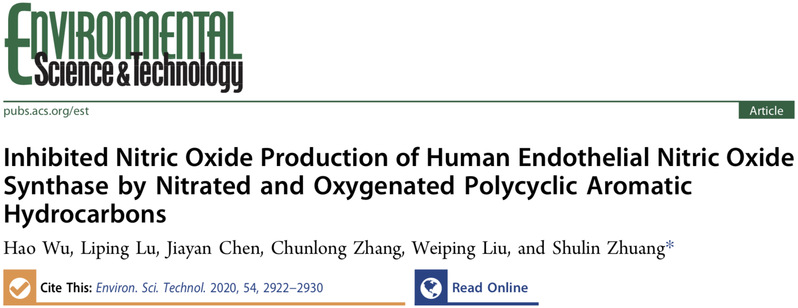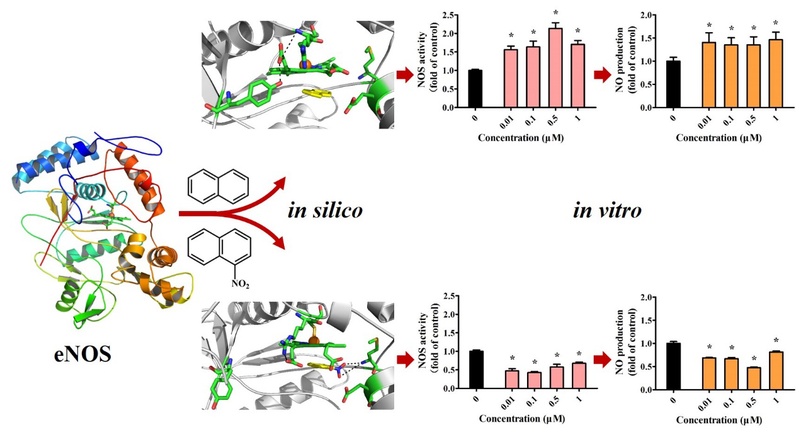ES&T:The Inhibited Nitric Oxide Production of Human Endothelial Nitric Oxide Synthase by Nitrated and Oxygenated Polycyclic Aromatic Hydrocarbons
2020-04-24
On February 5, 2020, Professor Zhuang Shulin's research group published a research paper in the Journal of Environmental Science & Technology entitled the embedded nitric oxide production of human endotherial nitric oxide complex by nitrated and oxygenic polycyclic aromatic hydrocarbons.
Abstract:
Nitrated and oxygenated polycyclic aromatic hydrocarbons (NPAHs and OPAHs) from the direct atmospheric emission or the degradation of parent PAHs are increasingly recognized because of their potential health risks. Herein, we investigated the effects of four NPAHs/OPAHs (1-NNAP, 9-NANT, 9,10-AQ, and 9-FLU) and their parent PAHs (NAP, ANT, and FLU) on endothelium function with regard to endothelial nitric oxide synthase (eNOS) and endothelium-derived nitric oxide (NO) production in human umbilical vein endothelial cells. The eNOS enzymatic activity and NO production were promoted by NAP, ANT, and FLU; however, eNOS activity was dropped by 52.8, 52.1, 52.5, and 44.5%, and NO production was decreased by 31.1, 50.3, 65.0, and 35.0% after 24 h exposure to 0.01 μM 1-NNAP, 9-NANT, 9,10-AQ, and 9-FLU, respectively. The mRNA expression of eNOS and protein expression of phosphorylated eNOS (Ser1177) were increased by three PAHs but decreased by four NPAHs/OPAHs. The 100 ns molecular dynamics simulations reveal the conformational alteration in the key propionate of heme upon the binding of NPAHs/OPAHs. Our findings provide the first in silico and in vitro evidence for the potential endothelial dysfunction of nitrated and oxygenated PAHs. The health risk implications of NPAHs/OPAHs and corresponding parent PAHs warrant further research.
Link:https://doi.org/10.1021/acs.est.9b07163


